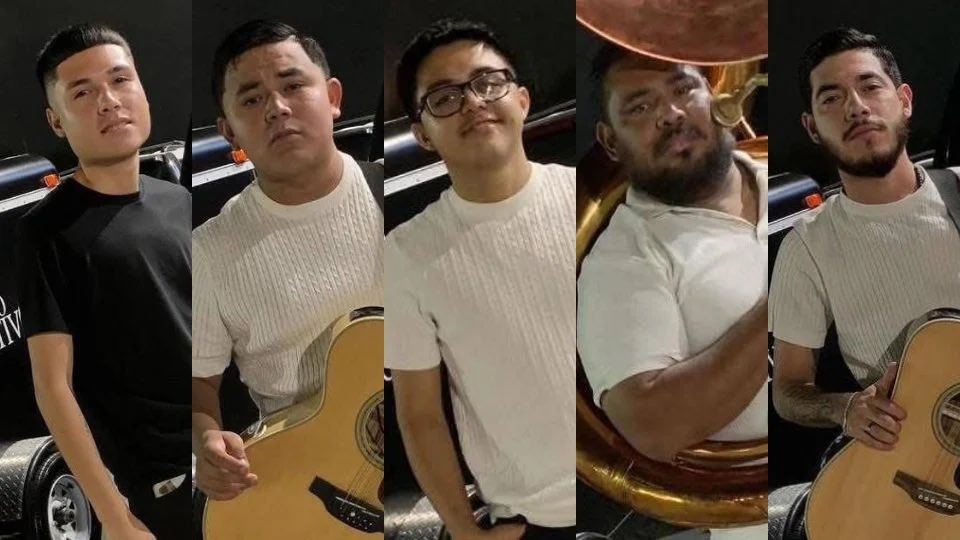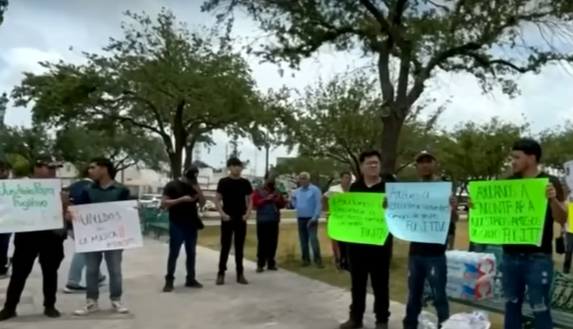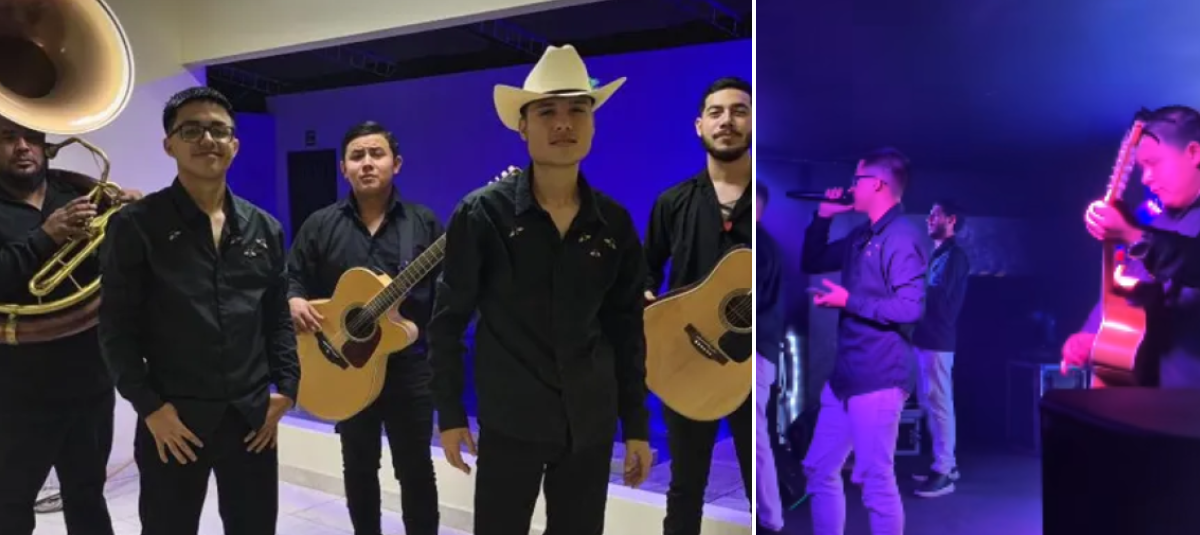Why are bands like 'Grupo Fugitivo,' a regional Mexican band, persecuted by drug traffickers and cartels?

On June 2, three people were arrested in the state of Tamaulipas, in northern Mexico, as suspects in the deaths of four members of "Grupo Fugitivo" and the manager of the Mexican corrido and cumbia band.
According to the prosecutor's office, while traveling to a concert in a van, the five members of the group were kidnapped and subsequently murdered. Their bodies were found on a property in the city of Reynosa last Thursday.

The young men disappeared on May 25. Photo: Social media
The Gulf Cartel, designated a terrorist organization three months ago by the President of the United States, operates in Tamaulipas.
This is not the first case in which Mexican musicians have been affected by the violence of organized crime in the country. In fact, in 2013, in the state of Nuevo León, located in northeastern Mexico, 17 musicians from the band Kombo Kolombia were murdered by the Sinaloa cartel as "punishment" for their alleged ties to their rivals.
Days after the disappearance of the members of "Grupo Fugitivo" in the state of Morelos, Julio Eusebio Labra, vocalist of "Los Conquistadores de la Sierra," a Mexican corrido band, was also murdered while performing at a bar.
Other high-profile cases included singer Valentín Elizalde, also murdered in Reynosa as he left a performance in 2006, and Sergio Gómez, vocalist of the group K-Paz de la Sierra, killed in Michoacán in 2007. Between 2006 and 2013, some fifty narcocorrido musicians fell victim to these organized crime groups.
These cartels and drug traffickers often pay them to compose and perform "narcocorridos" praising their leaders, which creates a "loyalty" to these illegal groups.

Protests by relatives of members of the "Fugitive Group." Photo: Screenshot by Milenio
Despite these crimes, corridos remain popular in the country, which is why the government of Mexican President Claudia Sheinbaum launched a binational music competition "for peace and against addiction" in April , seeking to counter their popularity among young people in Mexico and the United States.
Artists in the spotlight The sister of one of the musicians, who did not identify herself for security reasons, told the press that she had received extortion calls after their disappearance. She also reported the theft of two of the band's vehicles.
The family members, along with colleagues from other musical groups, held a protest on Wednesday in front of Reynosa City Hall and then blocked the international bridge connecting the city with Pharr, Texas.

This is known. Photo: Social media
For years, Mexican regional musicians have been the target of threats and attacks from organized crime groups , who pay them to compose and perform songs that praise their leaders, known as "narcocorridos."
In January of this year, media reported that a small plane dropped leaflets in Culiacán (northwest) containing threats against around twenty artists and influencers for alleged dealings with Los Chapitos, one of the factions warring for control of the Sinaloa cartel, founded by the detained Joaquín "Chapo" Guzmán.
Among those threatened was the corrido tumbados singer Peso Pluma, who has admitted to writing songs commissioned by drug traffickers. Violence in Sinaloa has left some 1,200 dead since last September.
Several regions in Mexico have banned the broadcast of narcocorridos, which recently sparked riots during a concert in Mexico State after a singer refused to perform some of his most popular singles.
eltiempo


%3Aformat(jpg)%3Aquality(99)%3Awatermark(f.elconfidencial.com%2Ffile%2Fbae%2Feea%2Ffde%2Fbaeeeafde1b3229287b0c008f7602058.png%2C0%2C275%2C1)%2Ff.elconfidencial.com%2Foriginal%2F5c8%2F74e%2Fcd0%2F5c874ecd0ef9857a4f9b4d6232cf5d78.jpg&w=3840&q=100)
%3Aformat(jpg)%3Aquality(99)%3Awatermark(f.elconfidencial.com%2Ffile%2Fbae%2Feea%2Ffde%2Fbaeeeafde1b3229287b0c008f7602058.png%2C0%2C275%2C1)%2Ff.elconfidencial.com%2Foriginal%2F9f7%2F335%2Ffd9%2F9f7335fd9d5b3c1be038af6559f2701b.jpg&w=3840&q=100)